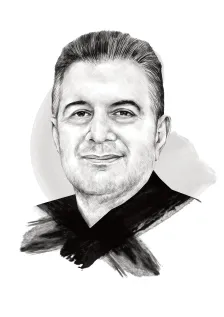Saudi Arabia’s role as a driver of positive change is almost the only cause for celebration amid the G20's relatively stagnant track record lately.
It is a country that has stood firm in its vision — both in word and deed —and is keen on identifying shared interests in most international forums and blocs.
The new economic corridor project announced at the G20 summit on Saturday is the best proof of this; it wouldn’t have come into being without the initiative of Saudi Arabia's crown prince and prime minister Mohammed bin Salman.
On its part, the BRICS summit held in South Africa in late August was an event that was characterised by mobilisation against Western powers, alignment of members to reduce Western hegemony, and inclusion of new countries in the group for the same purposes.
Two weeks later, these countries’ leaders or representatives sat around the same table with Western and other nations within the G20, seeking practical solutions to the global economy’s current dilemmas.
Since its first summit in 2008, the G20 garnered a positive reputation for its successful tackling of major crises, particularly the financial crisis that unfolded in that same year.
Its emergence as a forum for international policy coordination seemed to be a godsend during the period of instability and chaos, but subsequent rivalries among its members diminished its economic utility.




